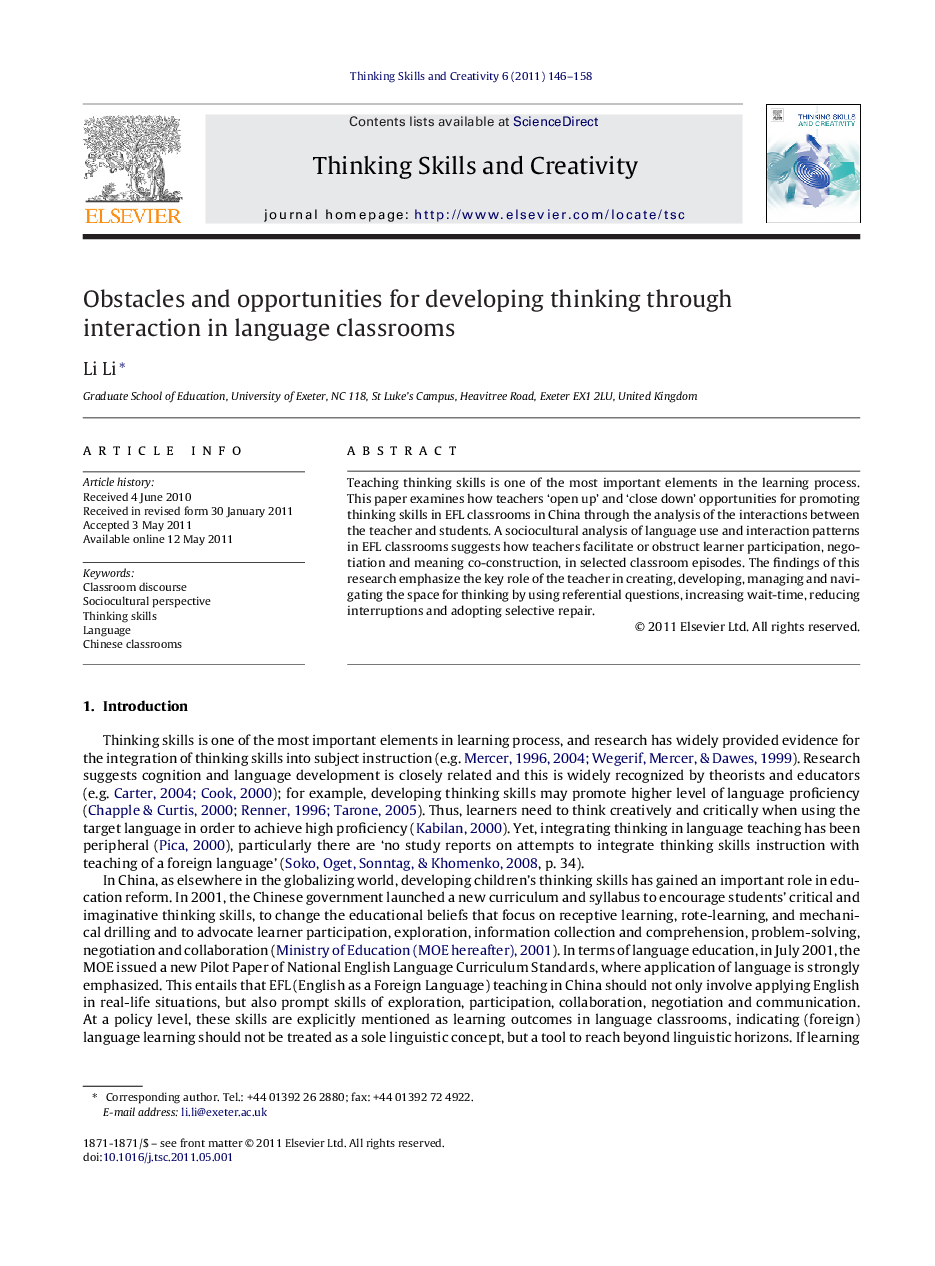| Article ID | Journal | Published Year | Pages | File Type |
|---|---|---|---|---|
| 375720 | Thinking Skills and Creativity | 2011 | 13 Pages |
Teaching thinking skills is one of the most important elements in the learning process. This paper examines how teachers ‘open up’ and ‘close down’ opportunities for promoting thinking skills in EFL classrooms in China through the analysis of the interactions between the teacher and students. A sociocultural analysis of language use and interaction patterns in EFL classrooms suggests how teachers facilitate or obstruct learner participation, negotiation and meaning co-construction, in selected classroom episodes. The findings of this research emphasize the key role of the teacher in creating, developing, managing and navigating the space for thinking by using referential questions, increasing wait-time, reducing interruptions and adopting selective repair.
► I analyze classroom discourse of six EFL classrooms to examine how opportunities for promoting thinking skills are developed or hindered. ► Teachers play the key role in creating, developing, managing and navigating the space for thinking by using referential questions, increasing wait-time, reducing interruptions and adopting selective repair. ► Language is considered as tool rather than knowledge when higher-order thinking skills are focused. ► Spiral IRF is desirable to allow extended learner turns to help learners engage in thinking.
